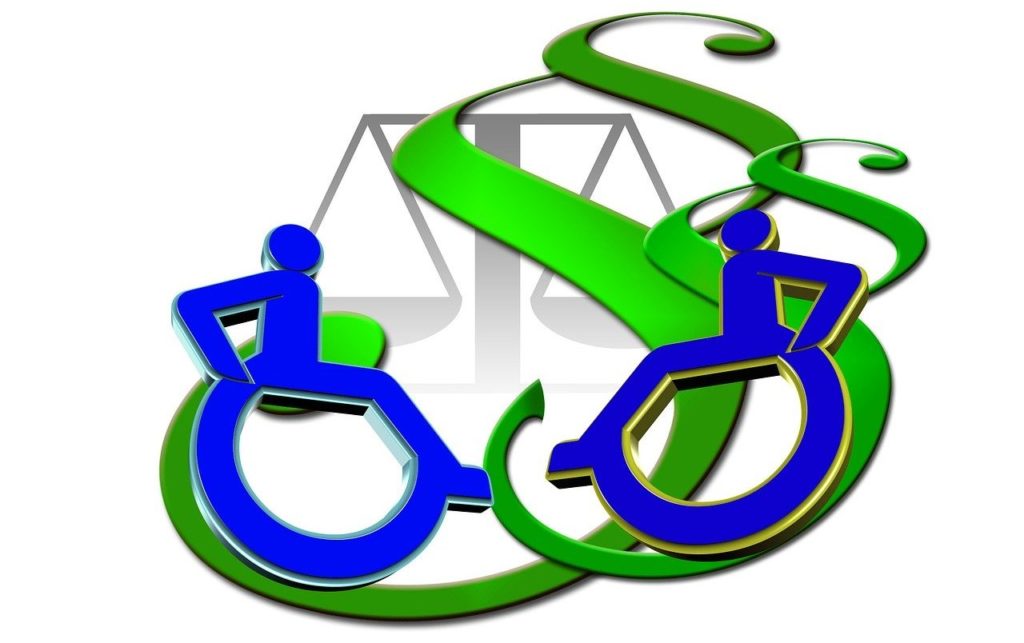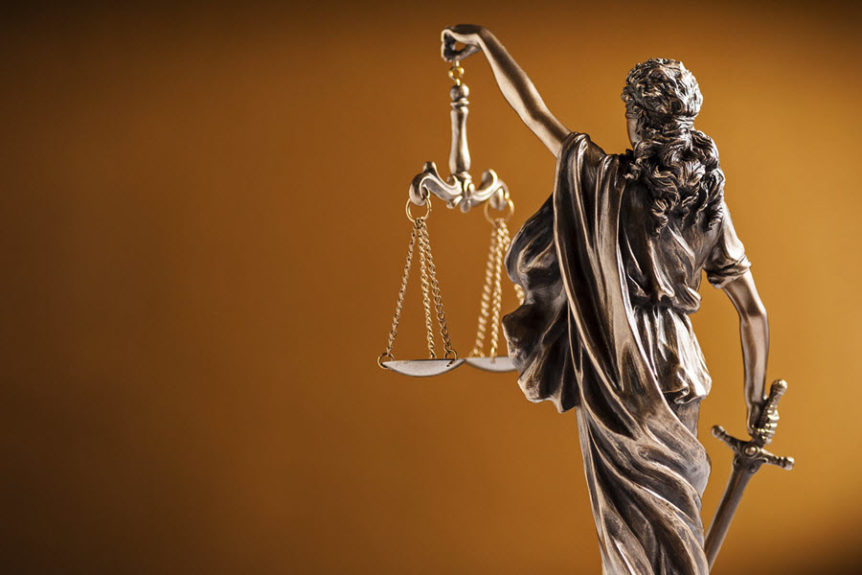Every American citizen has basic rights that are protected under the US Constitution and civil rights laws. Despite this, people of every race, color, creed, age, gender, or national origin can illegally have those rights violated or taken away.
Civil rights are basic human rights. These are infringed upon whenever human dignity, the right to defend yourself, the right to protect your life, the right to be free, or any other of the societal principles contained in the Bill of Rights, are ignored or disrespected.
Nonetheless, it’s important to keep in mind that not all forms of unfairness necessarily violate the Constitution. It’s therefore important to understand what constitutes a civil rights violation, to know when you need to hire a civil rights attorney.
Here’s what you need to know about it.
Disability Rights
It’s no secret that people living with a disability often face widespread discrimination, exclusion, and even segregation. If you’re an individual living with impairment, the federal disability rights laws can offer protection.

Below are examples of disability discrimination that may be cause for you to seek legal redress:
- A landlord declines to rent their home to you because of your disability
- A landlord demands a higher deposit from you than that required of the other tenants because of your disability
- A landlord prevents you from making modifications to your home to make it more accessible
- An employer declines to make “reasonable accommodations” in your work environment required to give you an equal chance to succeed
- An employer refuses to hire you, give you a promotion, or equal pay when you are capable of doing the job
- Your employer, coworkers, or customers make derogatory comments regarding your disability
If any of these rights are violated, get in touch with the top civil rights lawyers in your area to discuss your options.
Immigrants’ Rights
Regardless of what your current immigration status is, the US Constitution guarantees your rights. Here’s a list of instances when your civil rights could potentially be violated.

- If a police officer inquires about your immigration status:
- You have the right not to speak. Any information you divulge to them could end up getting used against you later in immigration court
- If, on the other hand, you’re not an American citizen, you will have to provide the requested documents if you have them with you
- If they ask to search you or your belongings, you have the right to refuse
- If you’re over 18 and don’t have your documents with you, exercise your right to remain silent
- If you’re arrested by a police officer or detained
- You have the right to remain silent and request for a government-appointed lawyer immediately – you don’t need to provide any explanations or excuses
- You don’t have to answer questions about whether you’re a US citizen, where you were born, or how you got into the country
It’s always a good idea to have your immigration documents with you or keep a copy of them with someone close to you. Also, ensure that you memorize your immigration number and give it to your family as well. It will make it easier for them to trace you if you end up getting detained.
It is well within your rights not to discuss your immigration status with anyone other than your immigration lawyer. Nonetheless, if you encounter any civil rights violations in the course of your interaction with law enforcement, top civil rights attorneys will help you hold the perpetrators accountable for their actions.
LGBTQ Rights
The legal landscape for the LGBTQ community is constantly changing. It is often quite difficult to tell whether you’re protected under state or federal rules. Nonetheless, here’s what you need to know about your rights.
- Title VII of the Civil Rights Act of 1964 bans employers with 15 or more employees from discriminating based on sex. Several courts have set precedence by ruling that this section of the Act also prohibits discrimination based on an individual’s gender identity or sexual orientation. Many cities and states have gone a step further to outlaw this type of discrimination.
- The federal Fair Housing Act bans landlords from sex discrimination, which the courts may also interpret to protect people of the LGBTQ community.
- The specific local and state laws where you live may also outlaw discrimination in public accommodations like restaurants or shops. Keep in mind, however, that there’s no federal law in place that bans this kind of discrimination.
If an individual or entity has discriminated against you based on your gender identity or sexual orientation, get in touch with a lawyer to help you determine the protections that you’re entitled to under the existing civil rights law.
Prisoners’ Rights
If you’re incarcerated, the law also guarantees your rights as you serve your sentence. Make use of the prison library to learn to identify instances when you face abuse or discrimination in prison that go against your constitutionally-given rights.

Here’s a list of some of the key rights you need to be aware of.
- Prison officers have a legal duty to the detainees to refrain from using excessive force
- They also have to protect you against assault by other prisoners
- They may use a reasonable amount of force in “good faith” to keep order if the situation calls for it
- They are bound by the 8th Amendment to respond to prior knowledge of a planned assault on a prisoner by the other incarcerated individuals or ensure that the prison practices and conditions do not create an unreasonable risk of assault
- The prison rules, policies, and practices should not impede your ability to practice the religious beliefs that you hold dear
When any of these rights are infringed upon, you need to get in touch with a top civil rights lawyer as soon as possible.
Your Rights When Stopped by Police
Getting stopped by law enforcement is, no doubt, a stressful experience that has the potential to degenerate very quickly.
It’s important to stress at this point that the burden of de-escalating a situation doesn’t, in any way, fall on you. The sworn police officer must take charge of a heated situation, and find a calm and collected way to dial down the temperatures.

Nonetheless, you can’t always expect or assume that law enforcement officers will always behave in a manner that protects your civil rights or liberties. You also can’t assume that they will respect your rights even when you assert them.
The best thing you can do to protect yourself is to stay calm in such situations and avoid exhibiting any form of hostility towards them. Unfortunately, sometimes, despite your best efforts, this isn’t always the case.
There have been numerous reports of police brutality cases that occurred even when citizens did all they could to put law enforcement officers at ease. Cases where citizens ended up injured, or worse, killed at the hands of police officers who are supposed to enforce the law, not be a law unto themselves.
This is a gross violation of civil rights. If you’re ever in such an encounter with police officers, particularly if you believe that the brutality or discrimination was based on your skin color, you need to hire a civil rights attorney as soon as you can.
The Killing of George Floyd by a Police Officer
On May 25, 2020, a law enforcement officer from the Minneapolis Police Department killed a 46-year-old African-American man by the name of George Floyd. Video footage showed him getting pulled out of a car for his alleged use of a $20 counterfeit bill.
He was handcuffed and pinned to the ground before officer Derek Chauvin proceeded to kneel on his neck for almost 9 minutes, three of which Mr. Floyd appeared to be unresponsive.
This encounter was one of several police brutality cases, particularly against black people, that call into question the criteria that officers use to justify the application of excessive force to subdue an already co-operative and handcuffed suspect.
The unfortunate incident was a gross violation of George Floyd’s civil rights as guaranteed by the Constitution of the United States.
Your Rights
If you’re ever stopped by the police, these are your rights:
- You have the right to remain silent. You’re not compelled to divulge details on where you’re traveling to or from, what you’re doing, or where you reside. If you wish to exercise this 5th Amendment right, you need to say so out loud. Some states may require that you provide your name if they ask you to identify yourself. Failure to do this may lead to your arrest.
- Police may pat you down if they suspect you of carrying a weapon. Otherwise, you don’t have to consent to them searching you or your belongings. Keep in mind that despite your refusal to consent to a search, a police officer may still decide to do it anyway against your will. To preserve your rights in any legal proceeding that may ensue after the incident, be sure to object to it both before and during the search.
- If you’re arrested by the police, you have the right to ask for a lawyer. If you can’t afford one, you have the right to request for a government-appointed attorney to represent you.
If your civil rights were violated in a police encounter ensure that you write down everything that you remember, including the badge numbers of the law enforcement officers, the agencies they were from, the patrol vehicle registration numbers, and any other details you may recall that are vital to your case.
If you witness police brutality, keep a safe distance, and don’t interfere with what the officers are doing. You do, however, have the right to observe and use your phone to record video footage of the incident.
Civil Liberties vs. Civil Rights
Many people often use the two terms interchangeably, even though they mean two completely different things. Here’s how.
The Bill of Rights, and the first 10, 13th, and 14th Amendments to the Constitution, are essentially a list of “don’ts” that apply to the Federal government. They relate to the rights guaranteed to every American citizen that cannot and should not be suppressed or violated.

So, civil rights usually refer to the basic right to equal treatment of all persons based on protected characteristics that “We the People” deem important. These include disability, religion, gender, color, race, or origin.
Civil liberties, on the other hand, refer to the basic freedoms that are guaranteed by the Bill of Rights or as the courts and legislatures have interpreted them through the years. Here’s the kicker. When most people talk about their “rights,” they are usually talking about their liberties.
Examples of civil liberties are the rights to free speech, privacy, remain silent during a police interrogation, a fair trial, marry, vote, or the right to be free from unreasonable search and seizures in your home. Civil liberties are what give you the right to use public resources like parks or your neighborhood.
Examples of Civil Rights and Liberties Violations
In a well-publicized incident in New York’s Central Park, Christian Cooper requested Amy Cooper to leash her dog. This was the rule in the park section they were in. When Amy refused to rein in her dog, she was essentially infringing on his civil liberties.
In yet another incident, when two civilians shot and killed Ahmaud Arbery while he was jogging through their neighborhood, they denied him of his right to life.
It is one of many civil rights cases of violations that are carried out by people who either are not aware of what civil rights and liberties are, or simply choose to ignore them and discriminate against fellow Americans based on their race, ethnicity, or national origin.
Either way, civil rights organizations exist to draw national attention to the oppressive practices that minority groups in the country are subjected to daily. Their ultimate goal is to end these injustices and promote equality for all American citizens.
Get the Justice You Deserve
If you’ve been mistreated based on protected characteristics such as disability, religion, gender, color, race, origin, or even pregnancy, you’ll need to hire a civil rights attorney to figure out what steps to take next.
Make no mistake about it – civil rights laws are complicated and often require that you file a claim with the government first before you can even file a lawsuit. But, with the help of a great attorney, you will get the justice you deserve.
If you have any legal queries, chat online with a Laws101.com attorney to connect you to a lawyer who can offer guidance on your specific case.
